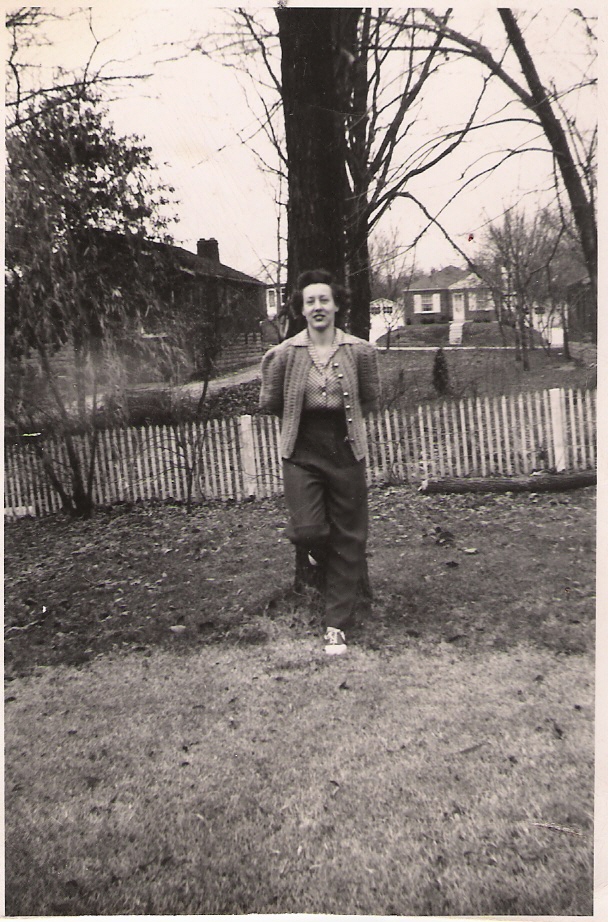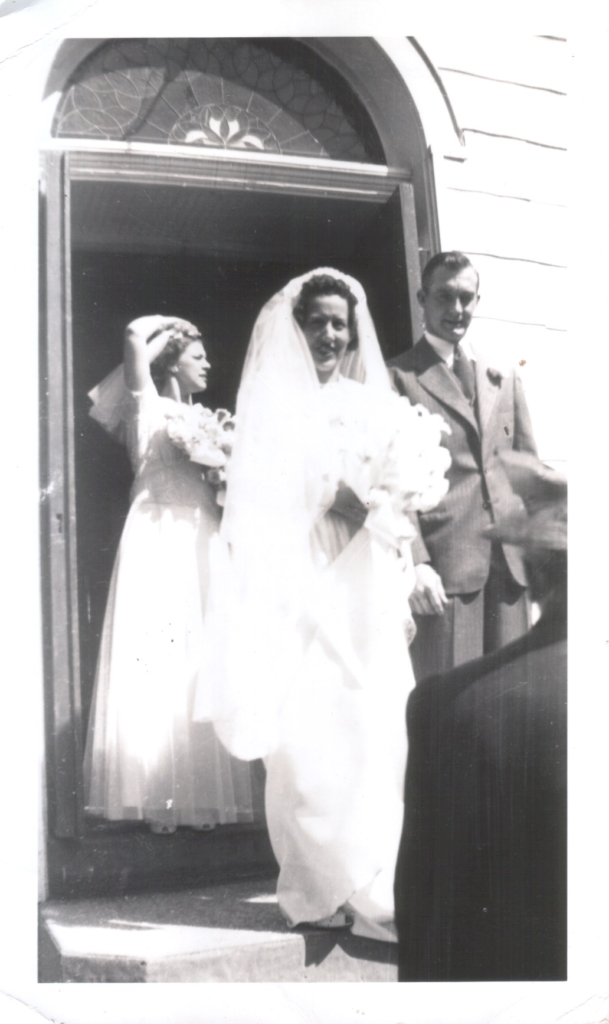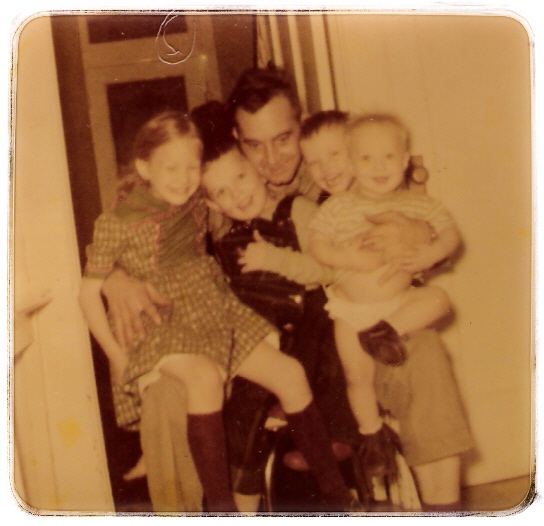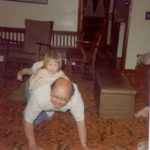He starts talking shortly after he sets his scone and coffee on the table. He is 92 years old and tells me his wife died 2 years ago of cancer. He takes a paper from his pocket and shows it to me. It’s a photo of his bride on the cover of her funeral program. She’s beautiful and frozen at 88, the age when she died. He asks me if I get The Shopper. Her obituary will be printed in this week’s edition.
He tells me about their marriage of 70 years. They worked together at Hormel, him for 47 years, her for 25 years. They retired 6 weeks apart from one another. Instead of buying an RV they traveled the world via bus tours. They enjoyed just getting on the bus and being driven around cities throughout North America. It was all planned for them, simple. They learned a lot from the tour guides who joined the bus in each city to give the passengers the lay of the land. He says it was also cheaper than buying an RV which he refers to as a “little house.”
He continues talking. I politely try to signal that I need to get back to work and pull out my headphones. I plug them into my laptop but don’t start any music. I need to get back to work, return some emails, and finish writing a lab for my class in the fall. He doesn’t understand my hint and continues to talk after about a minute. I take out my headphones and let him. I practice listening as best I can, though I feel a mild frustration that I am not accomplishing what I need to do. What I think I need to do. What I had planned to do. Perhaps listening to him is what I really need to do.
I mentally set aside my to-do list and focus my attention on him.
He keeps saying “we.” It’s a small thing, but it tells me how much he loves and misses his wife. He is cheerful and kind, but if you listen to his words, you can hear the loneliness. Most of his life is behind him and he speaks of only the past, not the future. I imagine there isn’t much future when a person is 92 and a widower.
He tells me of his 4 kids, three boys and a daughter, and his grandchildren. One just graduated high school up in the cities. His kids all attended the community college in Austin back when it was Austin Junior College. Each went on to obtain a 4-year degree. “The baby is 55,” he says a few times. A couple of his kids are retired. They don’t let him drive to the cities anymore, but they come down to get him and drive him up for a visit.
He mentions twice that his doctor warned him to look out for depression. He says he doesn’t think that’s an issue. He says he’s doing just fine. I get the feeling he is saying that more for his benefit than mine.
He talks of the Hormel strike and his perspective on it. I can tell he enjoyed his time at Hormel, working on the line. He brags about the pepperoni pillow packs and how the meat doesn’t curl when cooked. He retired nearly 30 years ago, but he speaks with a fondness that indicates loyalty and pride. He repeats himself often.
His coffee cup is empty and his scone is reduced to crumbs. Before he leaves we exchange names. After an hour of conversation, I know almost as much about him as I do some of my friends. He is a beautiful, kind, lonely human who needed someone to set aside their computer, take out their headphones, and listen to him. In today’s productivity-focused culture, it’s easy to forget that sometimes we need to set aside our to-do list and listen to a stranger in a coffee shop.
In a year, I won’t remember any of the emails I returned today, but I will remember the hour I set aside for him.
The most important thing any of us can do is to care for each other.




 © Catherine Haslag
© Catherine Haslag © Catherine Haslag
© Catherine Haslag